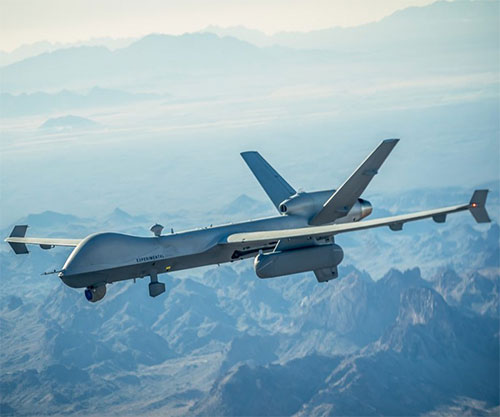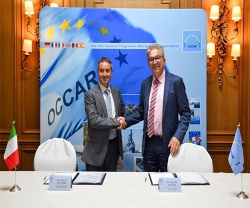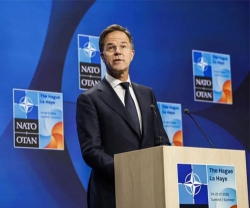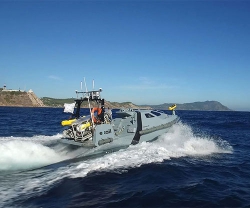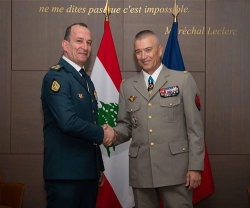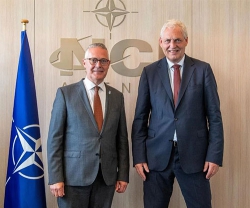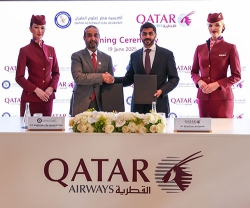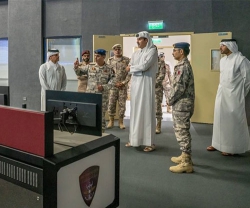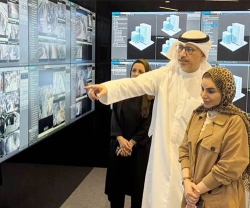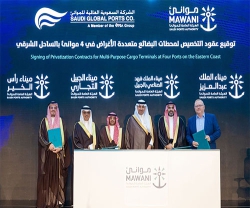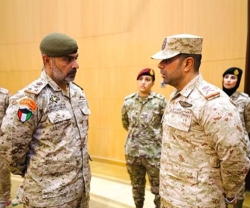General Atomics Aeronautical Systems, Inc. (GA-ASI) flew the new NATO Pod for the first time on November 23, 2022. The NATO Pod is a joint development between GA-ASI and Sener Aeroespacial of Spain. The NATO Pod is built by Sener Aeroespacial in Europe to meet NATO airworthiness standards, while increasing configuration and payload options for MQ-9A and MQ-9B Remotely Piloted Aircraft produced by GA-ASI.
The new product is designed for international customers that are interested in rapidly integrating sovereign payload capabilities to achieve specific mission objectives.
The test flight was performed at the Yuma Proving Grounds using a GA-ASI owned MQ-9A aircraft.
NATO Pod development was driven by GA-ASI's desire to provide customers with a customizable, multi-use pod for carriage of sovereign, cross-domain Intelligence, Surveillance and Reconnaissance (ISR) sensors for MQ-9A and MQ-9B RPA systems. GA-ASI is working with Sener and other European suppliers to integrate their sensor capabilities within this new pod. The NATO Pod is a flexible, scalable, certifiable enclosure with the structural features to host wide-ranging mission systems. The pod meets DEF STAN and STANAG certification standards for airworthiness, including lightning protection and bird impact.
The NATO Pod interfaces with common MQ-9 aircraft power and navigation interfaces, including the platform datalink connection to the Ground Control Station (GCS). Customer system integration is based on using a common set of interfaces to the aircraft and GCS systems.
“This is a truly momentous product design and implementation effort,” said GA-ASI Vice President of Mission Payloads and Exploitation, Satish Krishnan. “We’ve worked closely with Sener to meet requirements and keep our combined teams in sync to achieve this great outcome. Our successful test flight allows us to begin marketing this new capability to our international partner nations as a way to rapidly add sovereign payload capability.”
Rafael Orbe, Defence General Director at Sener Aeroespacial, said: “This first flight is the fruit of a long collaboration between GA-ASI and Sener and we are proud to have contributed to the success of the project. We look forward to continuing the good work together, which we are sure will bring us more successes in the future.
This industrial cooperation effort introduces European manufacturing of GA-ASI designed mission hardware and opens the door to customer-specified mission payloads – including technologies that are built outside the U.S. – for deployment on MQ-9A and MQ-9B. The NATO Pod that was tested featured a payload built by Arpège S.A.S. France.
MQ-9As are operated by a number of European countries, including the United Kingdom, France, Italy, the Netherlands, and Spain. GA-ASI’s newer MQ-9B variant has been acquired by the UK and Belgium. Recently Poland announced that it will lease MQ-9A.
General Atomics-Aeronautical Systems, Inc. (GA-ASI), an affiliate of General Atomics, is a leading designer and manufacturer of proven, reliable remotely piloted aircraft (RPA) systems, radars, and electro-optic and related mission systems, including the Predator® RPA series and the Lynx® Multi-mode Radar.
With more than seven million flight hours, GA-ASI provides long-endurance, mission-capable aircraft with integrated sensor and data link systems required to deliver persistent flight that enables situational awareness and rapid strike. The company also produces a variety of ground control stations and sensor control/image analysis software, offers pilot training and support services, and develops meta-material antennas.
Sener Aeroespacial has been a leading supplier of aerospace systems for Space, Defense and Science for more than 50 years, developing its own high added-value technology products. Sener Aeroespacial is a leader in guidance, navigation and control systems, actuation and orientation systems, and communications, COMINT, optics, ATC and avionics systems. It is involved in the main programs of the ESA and NASA space agencies. Sener Aeroespacial is part of the SATNUS consortium, which leads the Spanish contingent of Remote Operators of the FCAS program. Sener Aeroespacial is also part of the recently created SMS consortium.
Sener Aeroespacial has production centers in Catalonia, the Community of Madrid and the Basque Country. It is a company of the Sener engineering and technology group, founded in 1956, which employs 2,700 professionals on four continents.

